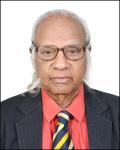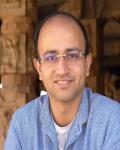Consciousness Studies
The research, outreach and documentation completed by the Consciousness Studies programme in 2020-21 pertained largely to projects funded by the Tata Trusts, DST-CSRI, and DST-SATYAM. The interdisciplinary nature of the research carried out by programme members facilitated the development of frameworks beyond the mainstream and concepts that were original yet addressed the marginal. For instance, the studies on causality and indigenous notions of health highlight the importance of considering a discipline-centric, yet multifarious set of data inputs. The programme organised, with the hashtag ‘#Care Consciously! Defeat Corona,’ several online programmes such as short academic courses, workshops, Friday lectures, poetry sessions, and lectures series, and through all these created a bridge with the public at large towards connecting life, living and health in the pandemic times. The programmes were attended by students, professionals and the larger public from across the world, and more than 300 institutions connected with the programme regularly.
NIAS-CSP Courses
Philosophy, Self & Consciousness I Research Writing & Communication
Phenomenology & Social Research I Quintessence of Being I Readings from Indian Aesthetics
Facets Of AI I The Lockdown Experience I Knowing, Experiencing and Being
NIAS CSP Consciousness Conversations
Philosophy Self and Consciousness I The Lockdown Experience I Research Writing and Communication
Reflective Course I Sanskit Language and its traditions series I Svasthya Rasa Bodhini
Phenomenology and Social Research I Quintessence of Being I Readings from Indian Aesthetics
Facets of AI Workshop I Kaavyaalaap I NIAS CSP Friday Lectures
| |
Sangeetha Menon Professor and Dean School: School of Humanities Programme: Consciousness Studies Room no: F6 080-22185090 sangeetha.menon@nias.res.in, prajnanata@gmail.com |

DOCTORAL STUDENT
Professor

Honorary Visiting Professor, Senior Homi Bhabha Fellow

Associate Professor
| Kashmir Saivism, Self-Reflection and Aesthetics The concepts of consciousness and self-reflection in the context of related epistemological and ontological structures that imply insights for understanding causal mechanism in Kashmir Saivism are studied. The cognitive and the aesthetic characteristics that underlie the philosophical discussions on emotions have been brought out in the light of understanding perceptual and experiential reality vis- a- vis the metaphysical structures of the concept of pratyabhijna. |
| Causal Structures, Consciousness and the Pratyabhijna The major intent is to focus on the fundamental discussions pertaining to philosophical and psychological questions raised by the thinkers of Kashmir Saivism and attempt the contextualising of Information theory, consciousness studies and artificial intelligence, from the view point of analysing causal structures of thought, experiences and entities. The study is the first comparative attempt to juxtapose emotions, aesthetic process, memory, cognitive structures and the self in the context of understanding consciousness in Indian philosophy. |
| Study of Alternate and Indigenous Psychiatric and Psychological Practises of Healing and Wellness The indigenous healing and wellness traditions of Kerala are being documented to understand the psychological and psychiatric implications with the help of examining antiquity, tribal medicine and native landscapes, ritual healing, and indigenous living. The association of language with consciousness, specifically how ambiguity as a function of language might be influential in psychological healing through Mantravada, is being addressed. |
| A Study of Consciousness Measures and Synchrony between Brain and Cardiovascular Dynamics in Yoga Experience The depth and quality of yoga and meditation on well-being has been addressed. A host of complexity measures of consciousness have been evaluated and have converged on a novel measure that we have proposed – Network Causal Activity. |
| Causality Testing in Cognitive Neuroscience with Applications to Measures of Consciousness A new algorithm – Compression-Complexity-Causality (CCC) to identify causal relationships between time series was invented. CCC performs reliably on short, noisy, sampled and filtered time series that occur in practical scenarios can be applied to wide range of applications in econometrics, cognitive science, climatology, measuring consciousness and sustainability research. Network Causal Activity (NCA) was tested on ECoG datasets from monkeys to characterise the level of consciousness in awake and anesthesia states based on causal activity in brain networks. NCA could be applied to help neurosurgeons determine the level of consciousness in patients who are unable to report their experience. A causal stability synchronisation theorem which is a necessary and sufficient condition for coupled dynamical systems to achieve complete synchronization has been proved. Its potential applications include determining when a group of coupled neurons will synchronise indicating the onset of a seizure. |
| Automatic Identification of SARS-CoV-2 vs. SARS-CoV-1 Viruses A compression-complexity distance measure was proposed to identify the novel SARS-CoV-2 virus that caused global pandemic of virus disease (COVID-19) and distinguishing it from SARS-CoV-1 virus using only short contiguous fragments of nucleotide sequences. The proposed algorithm could potentially be used in vaccine research by enabling rapid matching of genomic sequences and could avoid the need for sequence assembly. Neuro-chaos Inspired AI: ChaosNet, a chaos based artificial neural network architecture for classification has been proposed mimicking the chaotic firing of neurons in the brain (which conventional algorithms do not). ChaosNet produces state-of-the art performance on classification tasks on publicly available datasets. With as low as 0.05% of the total data used for training, the proposed method reports accuracies ranging 73% to 98% while also claiming to be robust to external noise. |

|
Pushya A Gautama What’s traditional about traditional medicine? Contemporary notions of “tradition” and “modernity” among vaidya-s of rural Bengaluru https://www.tandfonline.com/doi/full/10.1080/1683478X.2025.2596489#d1e145 Gautama, P. A. (2025). What’s traditional about traditional medicine? Contemporary notions of “tradition” and “modernity” among vaidya-s of rural Bengaluru. Asian Anthropology, 1–18. |
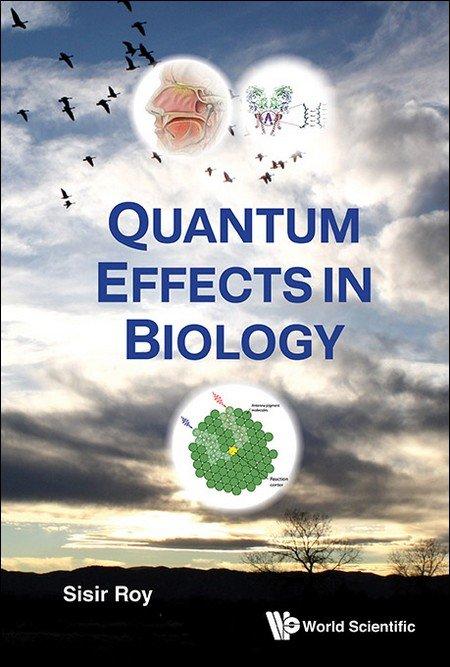
|
Sisir Roy Quantum Effects in Biology https://www.worldscientific.com/worldscibooks/10.1142/10038#t=aboutBook Roy, Sisir (2025) Quantum Effects in Biology. World Scientific, Singapore. ISBN 9789813109827 This book intends to give a systematic exposition of the validity of quantum principles in biological systems. There are two types of applications of quantum theory in physical systems — the "trivial applications" and "non-trivial applications". Since every object in this universe consists of atoms and molecules, they should be described by the laws of quantum theory — which we call trivial applications. On the other hand, there exist some systems where the observational results cannot be explained by the laws of classical physics and this requires a change of paradigm — these are known as non-trivial applications. Many authors pointed out such non-trivial applications of quantum theory to explain how some biological systems function. In this book, we review such kinds of results in a systematic manner which clearly indicates the need to change the paradigm to understand these biological systems better. |
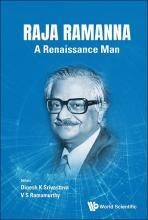
|
Sisir Roy Dr. Raja Ramanna and Ancient Indian Traditions https://www.worldscientific.com/worldscibooks/10.1142/14346#t=aboutBook Sisir Roy (2025). Dr. Raja Ramanna and Ancient Indian Traditions In: Raja Ramanna A Renaissance Man. World Scientific, pp.207-213. Dr. Raja Ramanna, an internationally renowned nuclear physicist and founder and Director of the National Institute of Advanced Studies (NIAS), had deep interests in Western classical music as well as in ancient Indian traditions. |
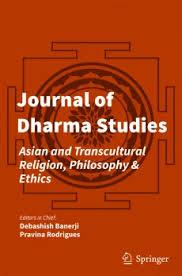
|
Sangeetha Menon Are Plants Conscious? Vegetal ‘Being’ in the Caraka Saṁhitā https://link.springer.com/article/10.1007/s42240-025-00231-1 Gautama, P.A., Menon, S. Are Plants Conscious? Vegetal ‘Being’ in the Caraka Saṁhitā. DHARM (2025). https://doi.org/10.1007/s42240-025-00231-1 This study discusses notions of plant consciousness within the classical Ayurveda text, the Caraka Saṁhitā (CS) and its ideas on vegetal ‘being’. Drawing extensively from Cakrapāṇidatta’s commentarial gloss on the CS, the Āyurvedadīpikā, it begins by pointing to two frequently conflicting conceptualizations and positions ascribed to plants within the text: (a) plants as material agents of therapy and (b) plants as sentient and conscious ‘beings’. Then, drawing upon the CS’s suggestion that the property of consciousness can be inferred from sentience, the paper investigates Cakrapāṇidatta’s position that plants are not only sentient but also capable of some degree of self-awareness. It then proceeds to ask whether plants may be considered as possessing ‘minds’, situating this discussion within the broader epistemic framework of the CS’s theory of sparśa. In conclusion, the study discusses the implications and challenges of such notions of plant being in view of the text’s overwhelming dependence on a herbal pharmacopeia. |

|
LM Patnaik Advances in Artificial Intelligence and Machine Learning:Proceedings of ERCICAM 2024, Volume 2 https://link.springer.com/book/10.1007/978-981-96-3105-6 Shetty, N. R., Patnaik, L. M., Nagaraj, H. C., Venugopal, K. R., & Rallapalli, S. (2025). Advances in Artificial Intelligence and Machine Learning: Proceedings of ERCICAM 2024: Vol. 2. Springer.https://doi.org/10.1007/978-981-96-3105-6 |

|
LM Patnaik Advances in Communication and Applications :Proceedings of ERCICAM 2024 https://link.springer.com/book/10.1007/978-981-96-0165-3 Shetty, N. R., Patnaik, L. M., Nagaraj, H. C., Venugopal, K. R., & Nalini, N. (2025). Advances in communication and applications: Proceedings of ERCICAM 2024. Springer. https://doi.org/10.1007/978-981-96-0165-3 |

|
Sisir Roy Darkmatter, Supersolidity and Possible Implications https://ipipublishing.org/index.php/ipil/article/view/216 Roy, S., & Roy, M. (2025). Darkmatter, Supersolidity and Possible Implications. IPI Letters, 3(3). The existence of new state of matter called super solidity has been verified in recent experiment in Italy. In 2008 Roy et al proposed that this new state of matter may be a candidate for Dark matter whose possible implications are elaborated in this publication. |
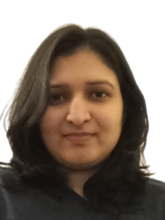
|
Pushya A Gautama, GG Gangadharan COVID-19 and Integrative Medicine: An Ayurveda perspective In a Special Issue, “COVID-19: Many Facets and Dimensions: A Multi-disciplinary Compendium of Current Evidence and Experience”; Brought out collectively by MS Ramaiah Hospital, India, University of Illinois, Chicago and University of Manitoba, Canada. |
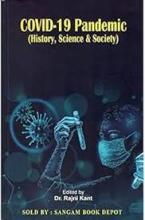
|
Pushya A Gautama Doctoral Student, Consciousness Studies Programme Post-COVID world and the New Humanism: intersections of wellness, philosophy and technology Co-Authored with Sangeetha Menon and Saurabh Todariya. COVID 19 Pandemic: History, Science and Society, Publications Division, Ministry of Information and Broadcasting, Govt of India, and Indian Council of Medical Research, 2021, pp 140-151 Anaplastic Astrocytoma (AA) is a relatively rare cancer, and is associated with a median life expectancy of 3 years after conventional therapy. Complete cure of the highly infiltrative AA is uncommon, and reports of positive outcome in cases of partial resection of AA are rare. Further, integrative approaches to the management of AA remain underexplored. This paper contributes to the limited literature in this domain by presenting a case that was successfully treated through integrative conventional and Ayurvedic interventions. A patient diagnosed with AA in the left parieto-occipital lobe underwent partial lesion resection followed by post-operative radiation and chemotherapy. The patient was given a conservative post-surgical life expectancy of two years, and was referred to an Ayurveda hospital for further treatment. The Ayurvedic intervention was focussed on redressal of radiation and chemotherapy side-effects, improvement of quality of life, and improving the patient’s strength and immunity. Following this novel integrative model of care, the patient was able to resume all personal and professional routines, and a contrast MRI revealed absence of residual lesion allowing the patient to outlive his initial prognosis by several years till date. We posit that the findings of this report merit further examination in the interest of potential improvements to existing models of care. |
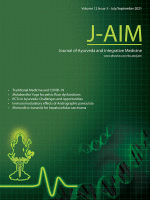
|
Pushya A Gautama Doctoral Student, Consciousness Studies Programme RCTs and other clinical trial designs in Ayurveda: A review of challenges and opportunities https://www.sciencedirect.com/science/article/pii/S0975947621001200 Gautama, P. A. (2021). RCTs and other clinical trial designs in Ayurveda: A review of challenges and opportunities. Journal of Ayurveda and Integrative Medicine, 12(3), 556-561. Currently, there is a paucity of clinical trial designs that comprehensively evaluate the efficacy of most complementary and alternative systems of medicine (CAMs) like Ayurveda. Several factors such as complex interventions, individualized therapy, etc., make designing Ayurveda clinical trials challenging. The prevalent randomized control trial (RCT) designs largely involve symptomatology/pathology-based recruitment and standardized interventions in carefully monitored trial environments. The present paper critically reviews the suitability of the dominant RCT model to Ayurveda and argues for newer, more sensitive trial models including modified RCTs and other clinical trial designs. It also explores the merits of a non-hierarchical approach to clinical evidence generation |
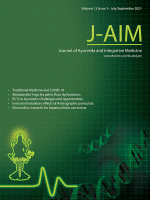
|
Pushya A Gautama Doctoral Student, Consciousness Studies Programme Integrative management of anaplastic astrocytoma through a combination of Ayurveda and conventional care: A case report https://www.sciencedirect.com/science/article/pii/S0975947623000645?via%3Dihub= Gautama, P. A., Subramanian, N., Varma, R. G., & Gangadharan, G. G. (2023). Integrative management of anaplastic astrocytoma through a combination of Ayurveda and conventional care: A case report. Journal of Ayurveda and Integrative Medicine, 14(5),100748 Anaplastic Astrocytoma (AA) is a relatively rare cancer, and is associated with a median life expectancy of 3 years after conventional therapy. Complete cure of the highly infiltrative AA is uncommon, and reports of positive outcome in cases of partial resection of AA are rare. Further, integrative approaches to the management of AA remain underexplored. This paper contributes to the limited literature in this domain by presenting a case that was successfully treated through integrative conventional and Ayurvedic interventions. A patient diagnosed with AA in the left parieto-occipital lobe underwent partial lesion resection followed by post-operative radiation and chemotherapy. The patient was given a conservative post-surgical life expectancy of two years, and was referred to an Ayurveda hospital for further treatment. The Ayurvedic intervention was focussed on redressal of radiation and chemotherapy side-effects, improvement of quality of life, and improving the patient’s strength and immunity. Following this novel integrative model of care, the patient was able to resume all personal and professional routines, and a contrast MRI revealed absence of residual lesion allowing the patient to outlive his initial prognosis by several years till date. We posit that the findings of this report merit further examination in the interest of potential improvements to existing models of care. |
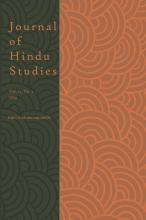
|
Pushya A Gautama Doctoral Student, Consciousness Studies Programme Book Review: The Practice of Texts: Education and Healing in South India. By Anthony Cerulli. https://academic.oup.com/jhs/article-abstract/17/2/282/7492157 Gautama, P. A. (2024). The Practice of Texts: Education and Healing in South India. By Anthony Cerulli. Journal of Hindu Studies, Oxford University Press Anthony Cerulli’s The Practice of Texts is a much needed book at a time when Ayurvedic education in India is receiving particular academic and policy scrutiny. In particular, it offers novel insight into the nature of modern Ayurvedic ‘gurukulas’ and the unique roles they serve, as fluid spaces within which ‘neo-traditions’ of Ayurveda evolve and are transmitted from practicing vaidya-gurus to students. It also masterfully reinterprets and transforms the very notion of the classical Ayurvedic text from a bounded, static re-telling of history, to a ‘fluid and conversational resource’ (pp. 40) that is a ‘field of knowing on which (the) vaidya-guru coordinates (her) interactions with patients (and students) (pp. 87)’. It is written with great nuance, both in terms of factual accuracy as well as anecdotal richness, and offers to the reader a rare and expansive presentation of the larger historical, political, and pedagogical frameworks within which the Ayurvedic gurukula exists and functions, in contemporary South India. |
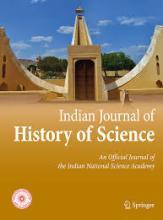
|
Pushya A Gautama Doctoral Student, Consciousness Studies Programme Placing well-being: The role of ecology in Āyurveda and Māvilan healing traditions https://link.springer.com/article/10.1007/s43539-024-00133-4 Gautama, P. A., Guruvayoorappan, S., & Menon, S. (2024). Placing well-being: The role of ecology in Āyurveda and Māvilan healing traditions. Indian Journal of History of Science, 59(3), 274-283. This study examines how ecological systems contribute to notions of well-being in two Indic healing traditions– Āyurveda and the Māvilan healing traditions. We focus on the ecological place (or eco-place) as a living and dynamic space within which cultures of knowledge emerge, and healing identities become constructed, fostering multiple somatic, psychological, social, and spiritual correspondences between its human and other-than-human members, and through which a variety of well-being experiences emerge. Three lenses are used for this purpose (i) a narrative ecology of healing, (ii) agentic herbs and co-creative healing, and (iii) healing of natural ecological systems. For the first, the concept of narrative ecology is examined, alongside how healing knowledge emerges in both Āyurveda and the Māvilan healing traditions from human and other-than-human understandings of the world; for the second, we examine how, despite significantly differing engagements with forest ecosystems, the notion of plant-agency can recast healing as a co-creative process in both traditions. For the third, we explore ideas regarding other-than-human illness and therapeutics in Āyurveda and the Māvilan healing traditions. |
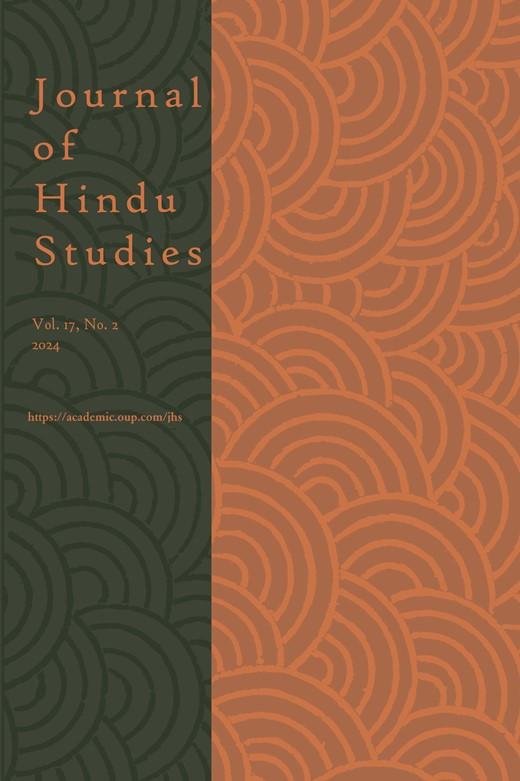
|
Sangeetha Menon co-authored Professor, Consciousness Studies Programme Self, Well-being, and Agency in the Caraka Saṃhitā https://academic.oup.com/jhs/advance-article-abstract/doi/10.1093/jhs/hiae013/7902183 Gautama, P. A., & Menon, S. (2024). Self, Well-being, and Agency in the Caraka Saṃhitā. Journal of Hindu Studies, hiae013. https://doi.org/10.1093/jhs/hiae013 In this study, we examine three different conceptions of self within the Caraka Saṃhitā (CS), a classical Sanskrit Āyurveda text, based on three interrelated notions of suffering, well-being, and the nature of the self’s agentic pursuit of remedy. These are—(i) the phenomenal self, (ii) the expansive self, and (iii) the transcendental self. The phenomenal self-in-the-world encompasses its existence across a single lifetime, and as the embodied, agentic self of the ‘sufferer in the here-and-now’, it is the primary subject of the CS. The temporally expansive self is conceived of in relation to the self’s experiences of disease, illness, and well-being as a result of karmic consequence and is therefore expansive (extends beyond the temporal bounds of a single lifetime). It experiences multiple embodied phenomenal subjectivities across an iterative temporal continuum. The ‘transcendental self’, although also temporally expansive, is the unchanging, eternal core of all ‘being’, the seer of all actions, the ‘knowing’ of which is ultimate well-being, and as such, implies the cessation of karmic valence. |
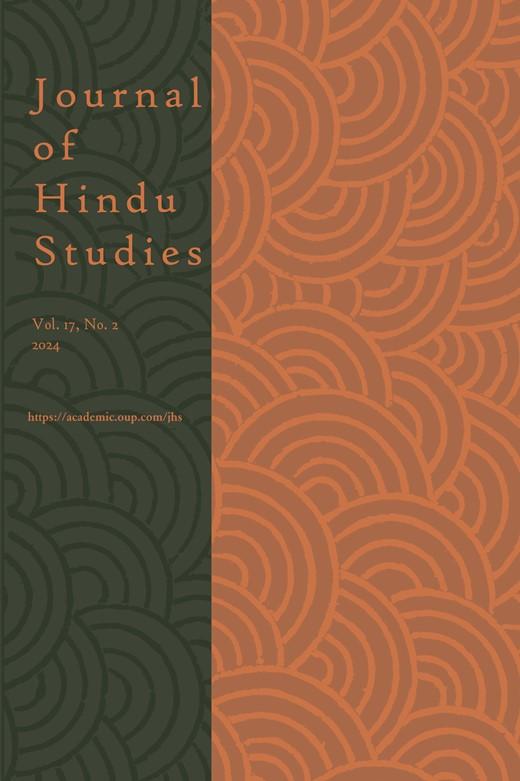
|
Pushya A Gautama co-authored Doctoral Student, Consciousness Studies Programme Self, Well-being, and Agency in the Caraka Saṃhitā https://academic.oup.com/jhs/advance-article-abstract/doi/10.1093/jhs/hiae013/7902183 Gautama, P. A., & Menon, S. (2024). Self, Well-being, and Agency in the Caraka Saṃhitā. Journal of Hindu Studies, hiae013. https://doi.org/10.1093/jhs/hiae013 In this study, we examine three different conceptions of self within the Caraka Saṃhitā (CS), a classical Sanskrit Āyurveda text, based on three interrelated notions of suffering, well-being, and the nature of the self’s agentic pursuit of remedy. These are—(i) the phenomenal self, (ii) the expansive self, and (iii) the transcendental self. The phenomenal self-in-the-world encompasses its existence across a single lifetime, and as the embodied, agentic self of the ‘sufferer in the here-and-now’, it is the primary subject of the CS. The temporally expansive self is conceived of in relation to the self’s experiences of disease, illness, and well-being as a result of karmic consequence and is therefore expansive (extends beyond the temporal bounds of a single lifetime). It experiences multiple embodied phenomenal subjectivities across an iterative temporal continuum. The ‘transcendental self’, although also temporally expansive, is the unchanging, eternal core of all ‘being’, the seer of all actions, the ‘knowing’ of which is ultimate well-being, and as such, implies the cessation of karmic valence. |
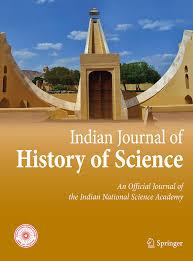
|
Sangeetha Menon Placing well-being: The role of ecology in Āyurveda and Māvilan healing traditions https://link.springer.com/article/10.1007/s43539-024-00133-4 Gautama, P. A., Guruvayoorappan, S., & Menon, S. (2024). Placing well-being: The role of ecology in Āyurveda and Māvilan healing traditions. Indian Journal of History of Science, 59(3), 274-283. The role of ecology in shaping notions of well-being in indigenous healing traditions is often overlooked in contemporary well-being discourse. This study examines how ecological systems contribute to notions of well-being in two Indic healing traditions– Āyurveda and the Māvilan healing traditions. We focus on the ecological place (or eco-place) as a living and dynamic space within which cultures of knowledge emerge, and healing identities become constructed, fostering multiple somatic, psychological, social, and spiritual correspondences between its human and other-than-human members, and through which a variety of well-being experiences emerge. Three lenses are used for this purpose (i) a narrative ecology of healing, (ii) agentic herbs and co-creative healing, and (iii) healing of natural ecological systems. For the first, the concept of narrative ecology is examined, alongside how healing knowledge emerges in both Āyurveda and the Māvilan healing traditions from human and other-than-human understandings of the world; for the second, we examine how, despite significantly differing engagements with forest ecosystems, the notion of plant-agency can recast healing as a co-creative process in both traditions. For the third, we explore ideas regarding other-than-human illness and therapeutics in Āyurveda and the Māvilan healing traditions. |
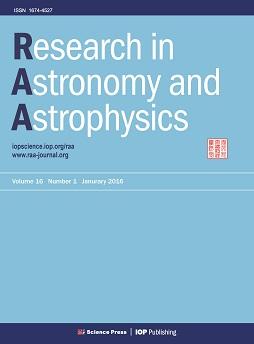
|
Sisir Roy Quantized Redshift and its Significance for Recent Observation https://iopscience.iop.org/article/10.1088/1674-4527/ad6db5 Co-Authored with Arindam Mal, Sarbani Palit , Christopher C. Fulton; Research in Astronomy and Astrophysics, 24:095014 |
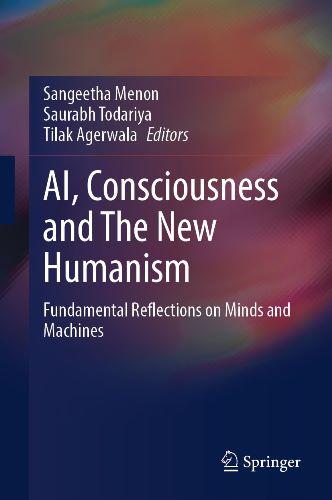
|
Sangeetha Menon AI,Consciousness and The New Humanism: Fundamental Reflections on Minds and Machines https://link.springer.com/book/10.1007/978-981-97-0503-0 Co-Authored With Saurabh Todariya and Tilak Agerwala, Springer, Singapore. ISBN 9789819705023 |
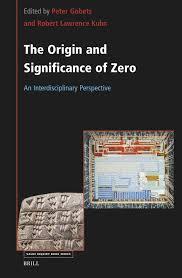
|
Sisir Roy Category Theory and the Ontology of Śūnyata https://brill.com/display/title/68384 Co-Authored with Rayudu Posina. Chapter 22, pp.450-478, in The Origin and Significance of Zero, an interdisciplinary perspective ed by :Peter Gobets and Robert Lawrence Kuhn , Value Enquiry Book Series, Brill. Notions such as śūnyata, catuskoti, and Indra’s net, which figure prominently in Buddhist philosophy, are difficult to readily accommodate within our ordinary thinking about everyday objects. Our thorough elaboration of the parallels between Buddhist philosophy and category theory can facilitate better understanding of Buddhist philosophy, and bring out the broader philosophical import of category theory beyond mathematics. |
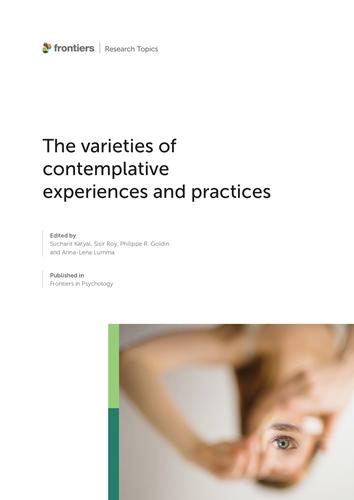
|
Sisir Roy The Varieties of Contemplative Experiences and Practices https://www.frontiersin.org/research-topics/18731/the-varieties-of-contemplative-experiences-and-practices Co-Edited With Sucharit Katyal, Philippe R. Goldin and Anna-Lena Lumma, Frontiers in Psychology. ISBN 978-2-8325-2900-3 While the diverse contemplative techniques are employed across a plethora of traditions around the world, contemplative research over the years has not reflected this variety. Despite growing interest in research on meditation, studies in contemplative science have largely focused on a narrow selection of practices (e.g., mindfulness, compassion, etc.) and traditions (i.e. Buddhism, Transcendental Meditation etc.). By choosing this topic, we hope to broaden the scope of contemplative science. |
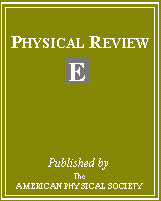
|
Nithin Nagaraj Granger causality for compressively sensed sparse signals https://journals.aps.org/pre/abstract/10.1103/PhysRevE.107.034308 Co-authored with Aditi Kathpalia, PHYSICAL REVIEW Vol.107:034308 |
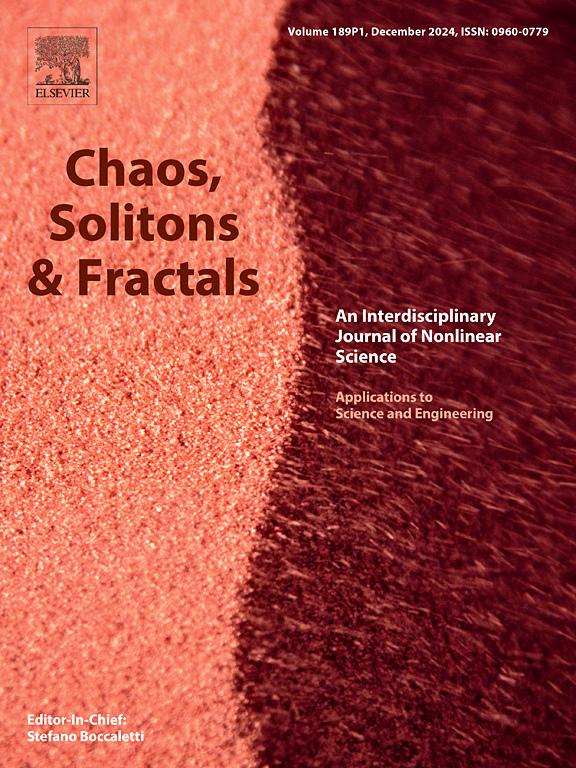
|
Nithin Nagaraj Analysis of logistic map based neurons in neurochaos learning architectures for data classification https://www.sciencedirect.com/science/article/abs/pii/S0960077923002485?via%3Dihub= Co-authored with Remya Ajai A.S. and Harikrishnan N.B. , Chaos, Solitons & Fractals Vol.170:113347 |

|
Sisir Roy Honorary Visiting Professor, Consciousness Studies Programme Objective Logic of Consciousness Co-edited with Buddhadev Bhattacharya. Perception and Cognition Nalanda Dialogue Series, Vol. IV We define consciousness as the category of all conscious experiences. This immediately raises the question: What is the essence in which every conscious experience in the category of conscious experiences partakes? We consider various abstract essences of conscious experiences as theories of consciousness. |

|
Sisir Roy co-edited Honorary Visiting Professor, Consciousness Studies Programme Towards reconstruction of the dialogue between modern physics and Buddhist philosophy: an inquiry into the concepts of quantum vacuum and Alayavijnana Co-edited with Buddhadev Bhattacharya. Nalanda Dialogue Series, Volume III In the present paper, our aim is not to discover the findings of modern physics in Vedanta or to show how modern physics can also be claimed as “spiritual”. On the contrary, an attempt has been made to critically analyse the claims of convergence between the concept of “Quantum Vacuum” and “Alayavijnana” in Yogacara Buddhism. |
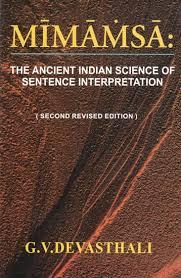
|
Sisir Roy Sisir Roy is Honorary Visiting Professor; is Senior Homi Bhabha Fellow, Consciousness Studies Programme Decision-making, human cognition, and equanimity of mind Mimamsa Vol 46 ;issue 1&2 |
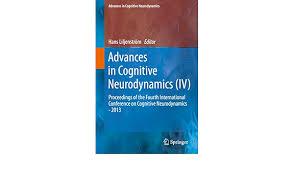
|
Sisir Roy co-edited Sisir Roy is Honorary Visiting Professor; is Senior Homi Bhabha Fellow, Consciousness Studies Programme Quantum Ontology and A New Direction for Cognitive Modelling Liljenstrm H. Et al (ed.) Advances in Cognitive Neurodynamics (IV)pp.419-423 |
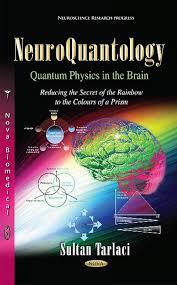
|
Sisir Roy, Samyadeb Bhattacharya, B V Sreekantan co-authored Sisir Roy is Honorary Visiting Professor; Samyadeb Bhattacharya is Senior Homi Bhabha Fellow, Consciousness Studies Programme Diracs Large Number Hypothesis: Is it related to 40 Hz Gamma oscillation or consciousness? NeuroQuantology 13 ; 253-258 |

|
Sisir Roy, Rodolfo Llinas co-authored Sisir Roy is Honorary Visiting Professor; is Senior Homi Bhabha Fellow, Consciousness Studies Programme Non-local hydrodynamics of swimming bacteria and self- activated process http://www.worldscientic.com/doi/10.1142/9789813 World Scientific Publishers |

|
Sisir Roy, Nepal Banerjee co-authored Sisir Roy is Honorary Visiting Professor; is Senior Homi Bhabha Fellow, Consciousness Studies Programme Information Theory and Living Organism, Science and Scientist procd. Of international conference pp 85-91 |
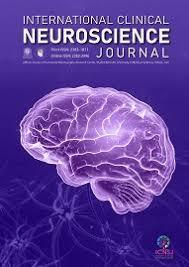
|
Sisir Roy Sisir Roy is Honorary Visiting Professor; is Senior Homi Bhabha Fellow, Consciousness Studies Programme Neuronal Disorders and Deciphering Noise in the Brain International Journal of Clinical Neurology and Brain Research, Vol1no (1),pp1-2 |
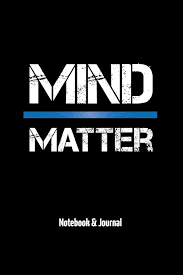
|
Sisir Roy, Venkata Rayadu Posina , Dhanjoo N. Ghista co-authored Sisir Roy is Honorary Visiting Professor; is Senior Homi Bhabha Fellow, Consciousness Studies Programme Functorial Semantics for the Advancement of the Science of Cognition Mind Matter vol 15 pp:161-184 |

|
Sisir Roy, Sarangam Majumdar co-authored Sisir Roy is Honorary Visiting Professor; Sarangam Majumdar is Senior Homi Bhabha Fellow, Consciousness Studies Programme Relevance of Quantum Mechanics in Bacterial Communication Neuroquantology Vol 16, pg: 1-6. |
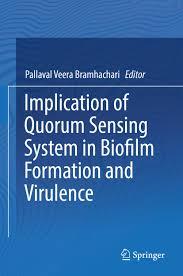
|
Sisir Roy, Sarangam Majumdar co-authored Mathematical Model of Quorum Sensing and Biolm. Pallaval Veera Bramhachari (eds) Implication of Quorum Sensing System in Biolm Formation and Virulence. page:351-368 Springer, Singapore |
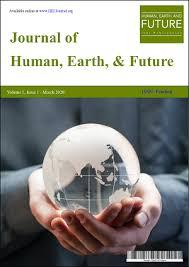
|
Sisir Roy, Sarangam Majumdar, Rodolfo r. Llins co-authored Sisir Roy is Honorary Visiting Professor; Sarangam Majumdar is Senior Homi Bhabha Fellow, Consciousness Studies Programme Study of the Bacterial "Conver- sations" and Pattern Formation in the Quorum Sensing System using Numerical Simulation Journal of Human, Earth and Future Vol. 3, Special Issue, pp.30-45 |
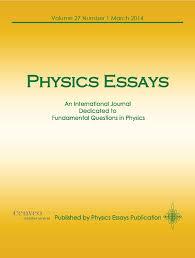
|
Sisir Roy, Kafatos .M. co-authored Sisir Roy is Honorary Visiting Professor; is Senior Homi Bhabha Fellow, Consciousness Studies Programme Complementary Principle and Cognition Process Physics Essays, Volume12, pp-662 |

|
Sisir Roy Sisir Roy is Honorary Visiting Professor; is Senior Homi Bhabha Fellow, Consciousness Studies Programme Quantum Information and levels of consciousness; Philosophy and Science: An Exploratory Approach to Consciousness RKMIC Calcutta ,pp.223 |

|
Sisir Roy Sisir Roy is Honorary Visiting Professor; is Senior Homi Bhabha Fellow, Consciousness Studies Programme Geometry of brain function and Consciousness: Understanding Consciousness : Recent Advances RKMIC,Calcutta pp .289. |
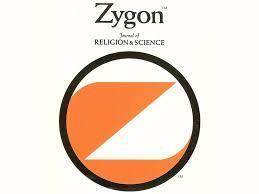
|
Sisir Roy, Lothar Schfer, Diogo Valadas Ponte co-authored Sisir Roy is Honorary Visiting Professor; is Senior Homi Bhabha Fellow, Consciousness Studies Programme Quantum Reality and Ethos : A Thought Experiment Regarding the Foundation of Ethics in Cosmic Order Zygon(USA), 44 no. 2;265-287. |

|
Sisir Roy co-edited Quantum Entanglement and Metaphysics of Relations, (ed) M.Kapoor Emergence of New Perspective in Philosophy |
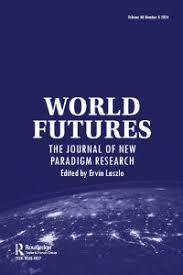
|
Sisir Roy, Ralph Abraham co-authored Sisir Roy is Honorary Visiting Professor; is Senior Homi Bhabha Fellow, Consciousness Studies Programme The Atomistic Revival World Futures (Taylor & Francis) pp 30-39 |

|
Sisir Roy, Ralph Abraham co-authored Sisir Roy is Honorary Visiting Professor; is Senior Homi Bhabha Fellow, Consciousness Studies Programme A Digital Solution to the Mind/Body Problem;Stepping beyond the Newtonian Paradigm in Biology Towards an Integrable Model of Life (eds) Plamen L. Simeonov et al Accelerating Discovery in the Biological Foundations of Science |
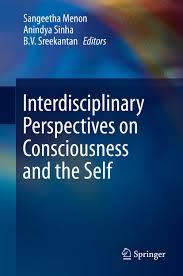
|
Sisir Roy co-edited Sisir Roy is Honorary Visiting Professor; is Senior Homi Bhabha Fellow, Consciousness Studies Programme Functional Geometry, Internal Representation and Consciousness,Proceed. of Inte.Conference Looking in (eds) Sngeetha Menon Springer |

|
Sisir Roy co-edited Sisir Roy is Honorary Visiting Professor; is Senior Homi Bhabha Fellow, Consciousness Studies Programme Quantum Ontology and Modelling in Cognitive Science,Procd.Application of Physics, Mathematics in Consciousness and Cognitive Science (eds) Sreekantan B.V et al World Scientific Publishers, Singapore |

|
Sisir Roy co-edited Sisir Roy is Honorary Visiting Professor; is Senior Homi Bhabha Fellow, Consciousness Studies Programme Quantum Effects in Biology ; Procd.Application of Physics, Mathematics in Consciousness and Cognitive Science (eds) Sreekantan B.V. World Scientfic Publishers |

|
Sisir Roy co-authored Sisir Roy is Honorary Visiting Professor; is Senior Homi Bhabha Fellow, Consciousness Studies Programme An inquiry into the concepts of Quantum vacuum in Modern Physics and Akasha in Advaita Vedanta Prajnanam: Self-Awarness, Kaivalyadham |

|
Sisir Roy co-edited Sisir Roy is Honorary Visiting Professor; is Senior Homi Bhabha Fellow, Consciousness Studies Programme Quantum Entanglement and The Philosophy of Relations : Jaina Perspective (eds) Swami Chaitanya Prajna Bhagawan mahavira International Research Center |
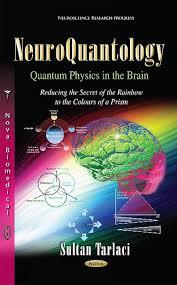
|
Sisir Roy, Reddy J Shashi Kiran co-authored Sisir Roy is Honorary Visiting Professor; Reddy J Shashi Kiran is Senior Homi Bhabha Fellow, Consciousness Studies Programme Meditation as a Preventive Sleep Medicine Neuro quantology vol 16 no11 pp 100-103 |

|
Sisir Roy, Reddy J Shashi Kiran co-authored Sisir Roy is Honorary Visiting Professor; Reddy J Shashi Kiran is Senior Homi Bhabha Fellow, Consciousness Studies Programme Issues, Possibilities and the role of neural noise in Meditation Research Revista Simbio-Logias |
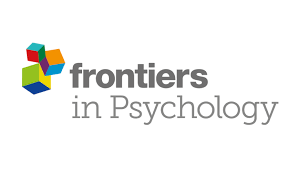
|
Sisir Roy, Reddy J Shashi Kiran co-authored Sisir Roy is Honorary Visiting Professor; Reddy J Shashi Kiran is Senior Homi Bhabha Fellow, Consciousness Studies Programme Commentary: Patanjali and neuroscientic research on meditation https://www.frontiersin.org/articles/10.3389/fpsyg.2018.00248/full In: Frontiers in Psychology 9 |
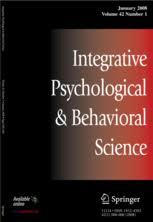
|
Sisir Roy, Reddy J Shashi Kiran co-authored Sisir Roy is Honorary Visiting Professor; Reddy J Shashi Kiran is Senior Homi Bhabha Fellow, Consciousness Studies Programme Consciousness as an Inhibited Manifestation and Quantum Physics https://doi.org/10.1007/s12124- 018-9442-x Integrative Physiological and Behavioural Science |
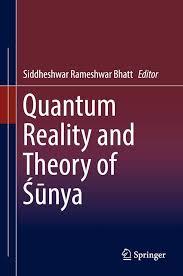
|
Sisir Roy co-edited Sisir Roy is Honorary Visiting Professor; is Senior Homi Bhabha Fellow, Consciousness Studies Programme Intrinsic Property, Quantum vacuum and Sunyata in Quantum Reality and Theory of sunyata (Edt) Bhatt S.R. Springer |
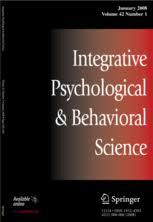
|
Sisir Roy, Reddy J Shashi Kiran, Pereira A Jr, Edilene SL co-authored Sisir Roy is Honorary Visiting Professor; Reddy J Shashi Kiran is Senior Homi Bhabha Fellow, Consciousness Studies Programme The Self Aspects: The Sense of Presence, Identication, and Location https://doi.org/10.1007/s12124-019-9476-8 Integrative Physiological and Behavioral Science |
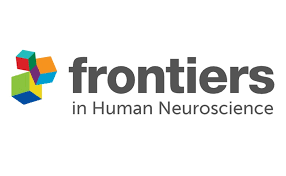
|
Sisir Roy, Reddy J Shashi Kiran co-authored Sisir Roy is Honorary Visiting Professor; Reddy J Shashi Kiran is Senior Homi Bhabha Fellow, Consciousness Studies Programme The Role of Ones Motive in Meditation Practices and Prosociality Frontiers in Human Neuroscience |
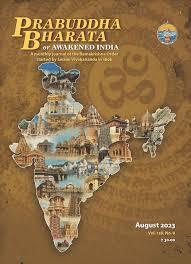
|
Sisir Roy, Reddy J Shashi Kiran co-authored Sisir Roy is Honorary Visiting Professor; Reddy J Shashi Kiran is Senior Homi Bhabha Fellow, Consciousness Studies Programme The Difference in Traditional and Contemporary Meditative Pathways Prabuddha Bharat, p.166-173 |

|
Sisir Roy Sisir Roy is Honorary Visiting Professor; is Senior Homi Bhabha Fellow, Consciousness Studies Programme Relevance of consciousness in Quantum theory and Possible Insights from Vedanta Prabuddha Bharat or Awakened India, Vol. 126, No. 8, p.580 |
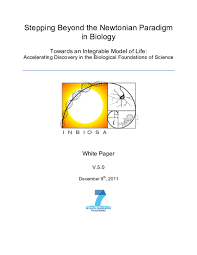
|
Sisir Roy, Ralph Abraham co-authored Sisir Roy is Honorary Visiting Professor; is Senior Homi Bhabha Fellow, Consciousness Studies Programme A Digital Solution to the Mind/Body Problem;Stepping beyond the Newtonian Paradigm in Biology Towards an Integrable Model of Life (Ed) L .Plamen, Simeonov et al. Accelerating Discovery in the Biological Foundations of Science |
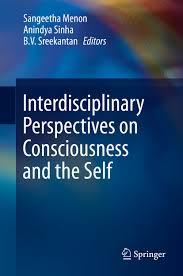
|
Sisir Roy, Sngeetha Menon co-edited Sisir Roy is Honorary Visiting Professor; is Senior Homi Bhabha Fellow, Consciousness Studies Programme Functional Geometry, Internal Representation and Consciousness Springer |

|
Sisir Roy, B V Sreekantan co-edited Sisir Roy is Honorary Visiting Professor; B V Sreekantan is Senior Homi Bhabha Fellow, Consciousness Studies Programme Quantum Ontology and Modelling in Cognitive Science,Procd.Application of Physics, Mathematics in Consciousness and Cognitive Science In: World Scientific Publishers |

|
Sisir Roy, B V Sreekantan co-edited Sisir Roy is Honorary Visiting Professor; B V Sreekantan is Senior Homi Bhabha Fellow, Consciousness Studies Programme Quantum Effects in Biology ; Procd.Application of Physics, Mathematics in Consciousness and Cognitive Science World Scientific Publishers |
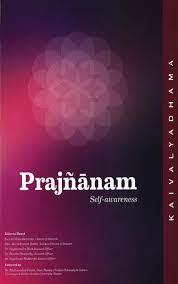
|
Sisir Roy Sisir Roy is Honorary Visiting Professor; is Senior Homi Bhabha Fellow, Consciousness Studies Programme An inquiry into the concepts of Quantum vacuum in Modern Physics and Akasha in Advaita Vedanta Prajnanam: Self-Awarness, Kaivalyadham |

|
Sisir Roy, Swami Chaitanya Prajna co-edited Sisir Roy is Honorary Visiting Professor; is Senior Homi Bhabha Fellow, Consciousness Studies Programme Quantum Entanglement and The Philosophy of Relations : Jaina Perspective Bhagawan mahavira International Research Center |
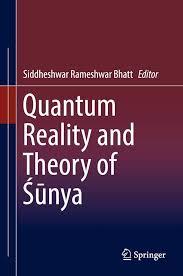
|
Sisir Roy, S.R.Bhatt co-edited Sisir Roy is Honorary Visiting Professor; is Senior Homi Bhabha Fellow, Consciousness Studies Programme Intrinsic Property, Quantum vacuum and Sunyata in Quantum Reality and Theory of sunyata In: Springer |
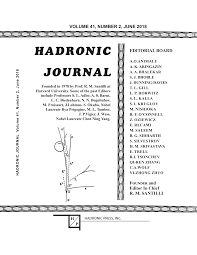
|
Sisir Roy, P.Bandyopadhaya co-edited Sisir Roy is Honorary Visiting Professor; is Senior Homi Bhabha Fellow, Consciousness Studies Programme On Quantum Statistics and Foundational Problems in Quantum Mechanics Two volumes in Hadronic Journal ,Hadronic Press |

|
Sisir Roy, R.K. Roychoudhury, H.I. Anderson co-edited Sisir Roy is Honorary Visiting Professor; is Senior Homi Bhabha Fellow, Consciousness Studies Programme Applications of Statistical Methods in Physics and Fluid Dynamics Supplementary Volume : Applicandae Mathematicae ,Kluwer Academic Publishers, The Netherlands |

|
Sisir Roy, S. Jeffers, J.P. Vigier, G. Hunter co-edited Sisir Roy is Honorary Visiting Professor; is Senior Homi Bhabha Fellow, Consciousness Studies Programme The Present Status of Quantum Theory of Light Kluwer Academic Publishers, The Netherlands |

|
Sisir Roy, M.W. Evans, J.P. Vigier, S. Jeffers co-authored Sisir Roy is Honorary Visiting Professor; is Senior Homi Bhabha Fellow, Consciousness Studies Programme The Enigmatic Photon III Kluwer Academic Publishers, The Netherlands |
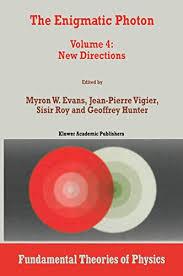
|
Sisir Roy, M.W. Evans, J.P. Vigier, G. Hunter co-edited Sisir Roy is Honorary Visiting Professor; is Senior Homi Bhabha Fellow, Consciousness Studies Programme The Enigmatic Photon IV Kluwer Academic Publishers, The Netherlands |
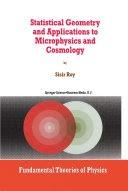
|
Sisir Roy Sisir Roy is Honorary Visiting Professor; is Senior Homi Bhabha Fellow, Consciousness Studies Programme Statistical Geometry and Applications to Microphysics and Cosmology Kluwer Academic Publishers, The Netherlands |
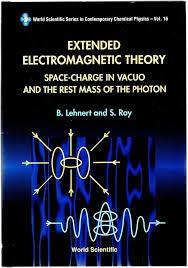
|
Sisir Roy, Bo Lehnert co-authored Sisir Roy is Honorary Visiting Professor; is Senior Homi Bhabha Fellow, Consciousness Studies Programme Extended Electromagnetic Theory with Space-Charge in Vacuo and Nonzero Photon Mass World Scientific Publishers, Singapore |

|
Sisir Roy, G. Bernroider, R.Takaki co-edited Sisir Roy is Honorary Visiting Professor; is Senior Homi Bhabha Fellow, Consciousness Studies Programme Physical Correlate of Mind Forma (Special issue),Japan |
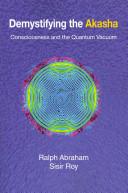
|
Sisir Roy, R. Abraham co-authored Sisir Roy is Honorary Visiting Professor; is Senior Homi Bhabha Fellow, Consciousness Studies Programme Demystifying the Akasa : Quantum Vacuum and Consciousness Epigraph,NY |
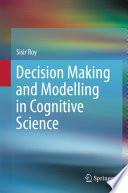
|
Sisir Roy Sisir Roy is Honorary Visiting Professor; is Senior Homi Bhabha Fellow, Consciousness Studies Programme Decision making and Modeling in Cognitive Science Springer |
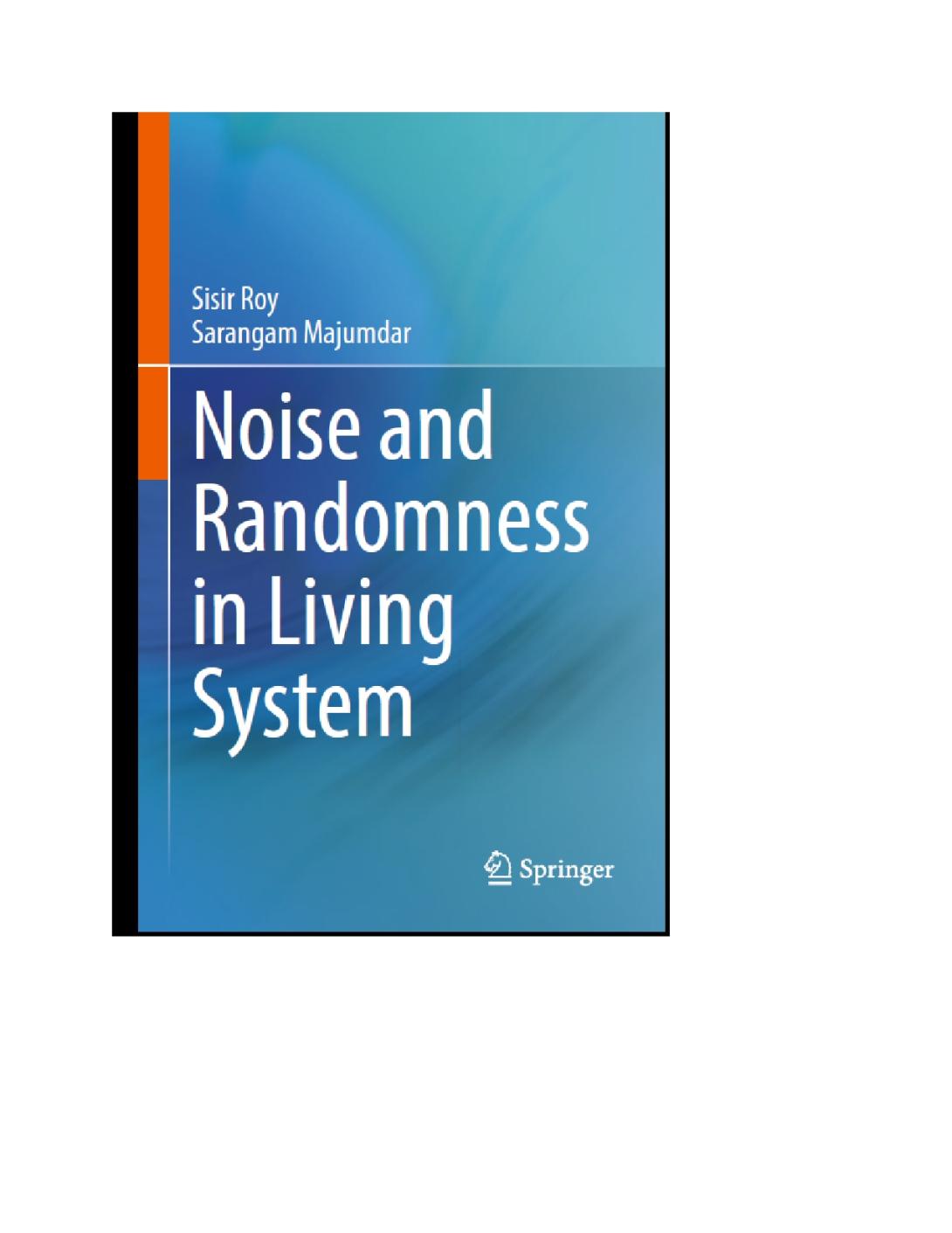
|
Sisir Roy, Sarangam Majumdar co-authored Sisir Roy is Honorary Visiting Professor; Sarangam Majumdar is Senior Homi Bhabha Fellow, Consciousness Studies Programme Noise and Randomness in Living System Springer |
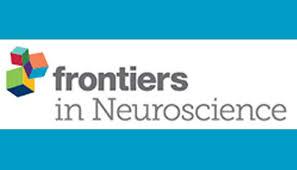
|
Sisir Roy, Reza Rastmanesh, Brent Alan Vogt, Eva Katalin Deli co-edited Sisir Roy is Honorary Visiting Professor; is Senior Homi Bhabha Fellow, Consciousness Studies Programme Decision Making from the Perspective of Neural Thermodynamics and Molecular Information Processing Frontiers in Neuroscience |
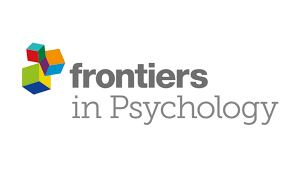
|
Sisir Roy, Sucharit Katyal, Philippe R. Goldin, Anna-Lena Lumma co-edited Sisir Roy is Honorary Visiting Professor; is Senior Homi Bhabha Fellow, Consciousness Studies Programme The Varieties of Contemplative Experiences and Practices Frontiers in Psychology |

|
Sisir Roy Redshift periodicity and its significance for Recent observation https://arxiv.org/abs/2206.11897 By Arindam Mal, Sarbani Palit, Sisir Roy, Archive Publication, Cornell University, 26 June 2022 |
| Test Publication Details Test |
|

|
Nithin Nagaraj, Aditi Kathpalia co-authored Measuring causality: the science of cause and effect arXiv:1910.08750v1 (Stat.ME), 19 October. |

|
Nithin Nagaraj, Karthi Balasubramanian co-authored Automatic identification of SARS Coronovirus using compression-complexity measures bioRXiv, 27 March. |
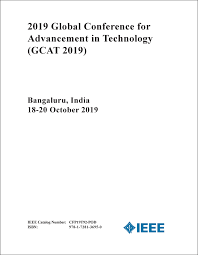
|
Nithin Nagaraj Associate Professor, Consciousness Studies Programme Distinguishing different levels of consciousness using a novel network causal activity measure IEEE Conference on Global Conference for Advancement in Technology (IEEE-GCAT). Bengaluru, 18th October 2019 |

|
Nithin Nagaraj, Aditi Kathpalia co-authored Data-based intervention approach for complexity-causality measure Peeri Computer Science (May)5: e196. |

|
Nithin Nagaraj co-authored Associate Professor, Consciousness Studies Programme A Neurochaos Learning Architecture for Genome Classification arXiv:2010.10995 [cs.NE], October 2020. |

|
Nithin Nagaraj co-authored When Noise meets Chaos: Stochastic Resonance in Neurochaos Learning arXiv:2102.01316 [q-bio.NC], March 2021. |
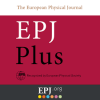
|
Nithin Nagaraj co-authored Associate Professor, Consciousness Studies Programme Evolution of novel activation functions in neural network training of astronomy data: habitability classification of exoplanets The European Physical Journal 229(16): 2629-2738. |

|
Nithin Nagaraj co-authored Associate Professor, Consciousness Studies Programme ISCG: An intelligent sensing and caption generation system for object detection and captioning using deep learning International Journal of Intelligent Information Technologies 16(4): 51-67 |
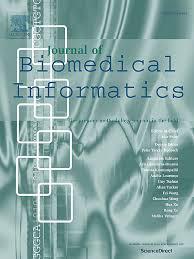
|
Nithin Nagaraj, Pranay SY co-authored Causal discovery using compression-complexity measures https://www.sciencedirect.com/science/article/pii/S1532046421000538 Journal of Biomedical Informatics 117, May 2021 |
| Nithin Nagaraj co-authored A novel chaos theory inspired neuronal architecture IEEE Conference on Global Conference for Advancement in Technology (IEEE GCAT), Bengaluru, 18 October 2019 |
|

|
Nithin Nagaraj Associate Professor, Consciousness Studies Programme Time-reversibility, causality and compression-complexity https://www.ncbi.nlm.nih.gov/pmc/articles/PMC8000281/ Entropy 23(3): 327. March 2021 |
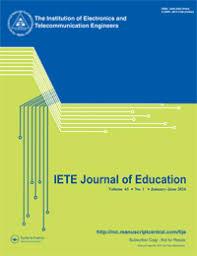
|
Nithin Nagaraj co-authored Associate Professor, Consciousness Studies Programme Chaos or randomness? effect of vagus nerve stimulation during sleep on heart-rate variability https://www.tandfonline.com/doi/full/10.1080/03772063.2020.1780165 IETE Journal of Research |
| Nithin Nagaraj co-authored Nithin Nagaraj is PhD Scholar; is Associate Professor, Consciousness Studies Programme ChaosNet: A chaos based artificial neural network architecture for classification Chaos: An Interdisciplinary Journal of Non-linear Science 29 (11):113125 (17 pages) |
|
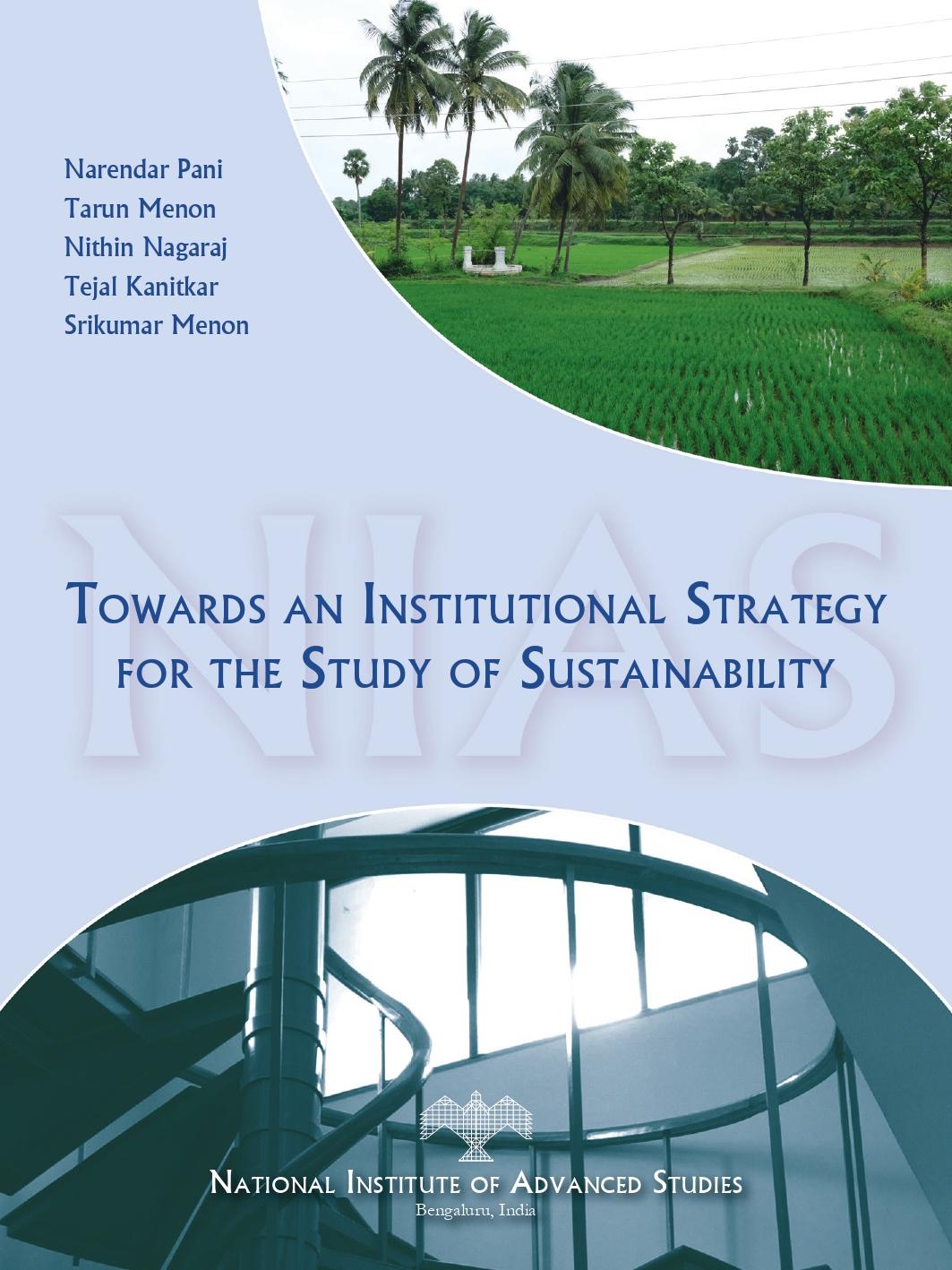
|
Narendar Pani, Nithin Nagaraj co-authored Narendar Pani is Professor and Dean; Nithin Nagaraj is Associate Professor, Consciousness Studies Programme Towards an Institutional Strategy for the Study of Sustainability (NIAS/U/RR/09/2020) |
| |
PhD Scholar, Consciousness Studies Programme Embodying Being: Between Heidegger and Kashmiri Shaivism CETANA: The Journal of Philosophy. Vol. 1. Issue 2. June, 2021 |
| |
PhD Scholar, Consciousness Studies Programme Technology and Truth in Post-Modern Age: A Phenomenological Analysis Jnanadeepa: Pune Journal of Religious Studies: 25/1-2 Jan-June 2021: 249-261 |
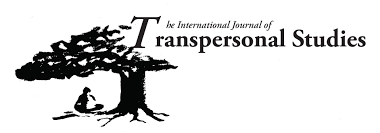
|
Sangeetha Menon, Shankar Rajaraman, Lakshmi Kuchibotla Sangeetha Menon is Professor and Head; Shankar Rajaraman is Post-Doctoral Associate, Consciousness Studies Programme Wellbeing and Self-transformation in Indian Psychology https://doi.org/10.24972/ijts.2018.37.1.13 International Journal of Transpersonal Studies. 37(1), 2018 |
| |
Shankar Rajaraman Post-Doctoral Associate, Consciousness Studies Programme Nipunapraghunakam Bangalore: Preksha Pratishthana, 2019 |
| |
Shankar Rajaraman Post-Doctoral Associate, Consciousness Studies Programme Bharavatarastava Bangalore: Preksha Pratishthana, 2019 |
| |
Shankar Rajaraman Post-Doctoral Associate, Consciousness Studies Programme The West on Our Poems: A Critique K.S. Kannan (Ed.), Western Indology on Rasa: A Pūrvapakṣa (pp. 227-249), 2018. Chennai: Infinity Foundation India |
| |
Sukanya G, Meera Kumar Menon, Sangeetha Menon Sukanya G is PhD Scholar; Meera Kumar Menon is Doctoral Student; Sangeetha Menon is Professor and Head, Consciousness Studies Programme എഴുതാപ്പുറങ്ങളിലൂടെ- പരമ്പരാഗത ചികിത്സാരീതികളിലേക്കൊരു തിരനോട്ടം Vijnanakairali, Kerala Bhasha Institute, Trivandrum, pp 42-48, September 2021 |
| |
Sukanya G PhD Scholar, Consciousness Studies Programme തനത് ഭക്ഷണസംസ്ക്കാരം വയനാട്ടിലെഗോത്രവർഗ്ഗക്കാർക്കിടയിൽ (Food Culture among the Tribes of Wayanad) ആദിവാസി, ദളിത് - ജീവിതവും പ്രതിരോധവും (Tribe, Dalit-Life and Resistance), edited by Sowmya Baby. Paideia books, pp.128-134, 2020 |
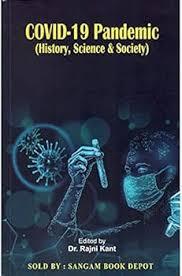
|
Sangeetha Menon, Pushya A Gautama Post-COVID world and the New Humanism: intersections of wellness, philosophy and technology Co-Authored with Pushya A Gautama and Saurabh Todariya. COVID 19 Pandemic: History, Science and Society, Publications Division, Ministry of Information and Broadcasting, Govt of India, and Indian Council of Medical Research, 2021, pp 140-151 |
| |
Siddharth S PhD Scholar, Consciousness Studies Programme What more than structure do we know? Journal of Indian Council of Philosophical Research 37: 115-131, 2020 |
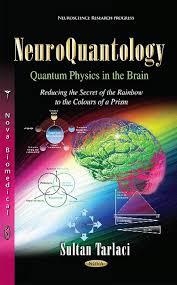
|
Sisir Roy, Samyadeb Bhattacharya, B V Sreekantan Honorary Visiting Professor, Consciousness Studies Programme Dirac’s large number hypothesis: Is it related to 40 Hz gamma oscillation or consciousness? Neuroquantology 13(3): 253-258, 2015 |
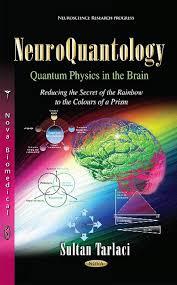
|
Sisir Roy, Reddy J Shashi Kiran Honorary Visiting Professor, Consciousness Studies Programme Meditation as a preventive sleep medicine Neuro Quantology 16(11):100-103, 2018 |
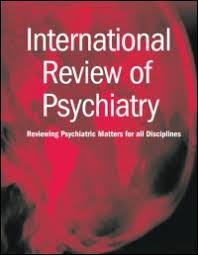
|
Sangeetha Menon, Rao Naren Professor and Head, Consciousness Studies Programme A heuristic model linking yoga philosophy and self-reflection to examine underlying mechanisms of add-on yoga treatment in schizophrenia International Review of Psychiatry 28(3): 265-272, 2016 |
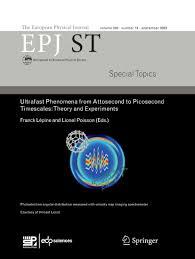
|
Nithin Nagaraj, Karthi Balasubramanian Associate Professor, Consciousness Studies Programme Dynamical complexity of short and noisy time series: Compression-complexity vs. Shannon entropy European Physics Journal Special Topics (Special issue: Aspects of Statistical Mechanics and Dynamical Complexity 226(10): 2191–2204, 2017 |
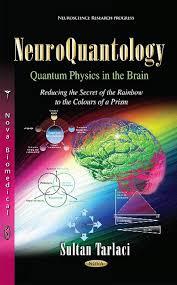
|
Sisir Roy, Sarangam Majumdar Honorary Visiting Professor, Consciousness Studies Programme Relevance of quantum mechanics in bacterial communication NeuroQuantology 16(3): 6, 2018 |
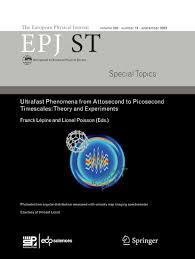
|
Nithin Nagaraj, Karthi Balasubramanian Associate Professor, Consciousness Studies Programme Three perspectives on complexity: Entropy, compression, subsymmetry The European Physical Journal Special Topics, 226: 3251-3272, 2017 |
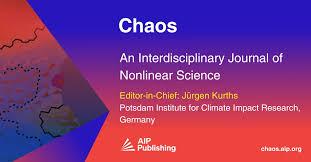
|
Nithin Nagaraj, Aditi Kathpalia co-authored Nithin Nagaraj is Associate Professor; Aditi Kathpalia is Doctoral Student, Consciousness Studies Programme Causal stability and synchronization Chaos: An Interdisciplinary Journal of Nonlinear Science (Fast-track), (Sep) 29: 091103, 2019 |
| |
Aditi Kathpalia, Nithin Nagaraj, Snehanshu Saha Aditi Kathpalia is PhD Scholar; Nithin Nagaraj is Doctoral Student; Snehanshu Saha is Associate Professor, Consciousness Studies Programme ChaosNet: A chaos based artificial neural network architecture for classification Chaos: An Interdisciplinary Journal of Non-linear Science 29 (11):113125 (17 pages), 2019 |
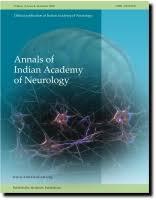
|
Nithin Nagaraj, Karthi Balasubramanian, K Harikumar, Sandipan Pati Associate Professor, Consciousness Studies Programme Vagus nerve stimulation modulates complexity of heart rate variability differently during sleep and wakefulness Annals of Indian Academy of Neurology 20(4): 403-407, 2017 |

|
Nithin Nagaraj, Karthi Balasubramanian Associate Professor, Consciousness Studies Programme Aging and cardiovascular complexity: Effect of the length of RR tachograms PeerJ 4:e275, 2016 |
| |
Aditi Kathpalia, Nithin Nagaraj Aditi Kathpalia is Doctoral Student; Nithin Nagaraj is Associate Professor, Consciousness Studies Programme Measuring Causality: The Science of Cause and Effect https://doi.org/10.1007/s12045-021-1119-y Resonance-Journal of Science Education, Volume 26, Issue 2, February 2021, pp. 191-210 |
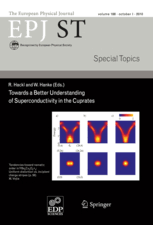
|
Nithin Nagaraj, Snehanshu Saha, Archana Mathur, Rahul Yedida, Sneha H R Associate Professor, Consciousness Studies Programme Evolution of novel activation functions in neural network training for astronomy data: Habitability classification of exoplanets https://doi.org/10.1140/epjst/e2020-000098-9 Eur. Phys. J. Spec. Top. 229, 2629–2738, November 2020 |

|
Nithin Nagaraj Associate Professor, Consciousness Studies Programme Measuring consciousness in the clinic https://doi.org/10.4018/978-1-7998-0326-3.ch004 In: N Sriraam ed., Biomedical and Clinical Engineering for Healthcare Advancement, IGI Global, 2020, pp. 66-77. |

|
Sangeetha Menon, Nithin Nagaraj, V V Binoy Self, Consciousness and Culture: Interdisciplinary Convergences on Knowing and Being https://link.springer.com/book/10.1007/978-981-10-5777-9 Springer NATURE, 2018 |
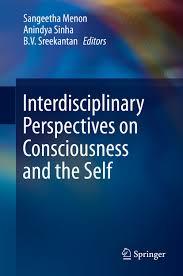
|
Sangeetha Menon, Anindya Sinha, B V Sreekantan Interdisciplinary Perspectives on Consciousness and the Self Springer NATURE 2014 |

|
Nithin Nagaraj Associate Professor, Consciousness Studies Programme Using cantor sets for error detection PeerJ Computer Science 5: e171, 2019 |

|
Sangeetha Menon, Meera Kumar Menon, Rakesh Kumar Sangeetha Menon is Professor and Head; Meera Kumar Menon is Doctoral Student; Rakesh Kumar is PhD Scholar, Consciousness Studies Programme Beyond Body–Mind: Self-narratives and Consciousness https://doi.org/10.1007/s12646-019-00519-w Psychological Studies 64(3): 266–274, 2019 |
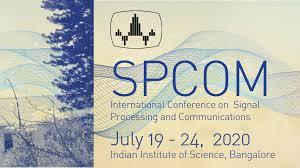
|
Nithin Nagaraj Nithin Nagaraj is Associate Professor; is PhD Scholar, Consciousness Studies Programme Neurochaos Inspired Hybrid Machine Learning Architecture for Classification https://doi.org/10.1109/SPCOM50965.2020.9179632 International Conference on Signal Processing and Communications (IEEE SPCOM), Bengaluru, July 2020, pp. 1-5 |
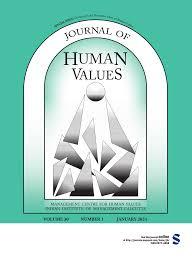
|
Sangeetha Menon Professor and Head, Consciousness Studies Programme The ‘Outer Self’ and the ‘Inner Body’: Exteriorization of the self in cognitive sciences Journal of Human Values 22(1): 39-45, 2016 |
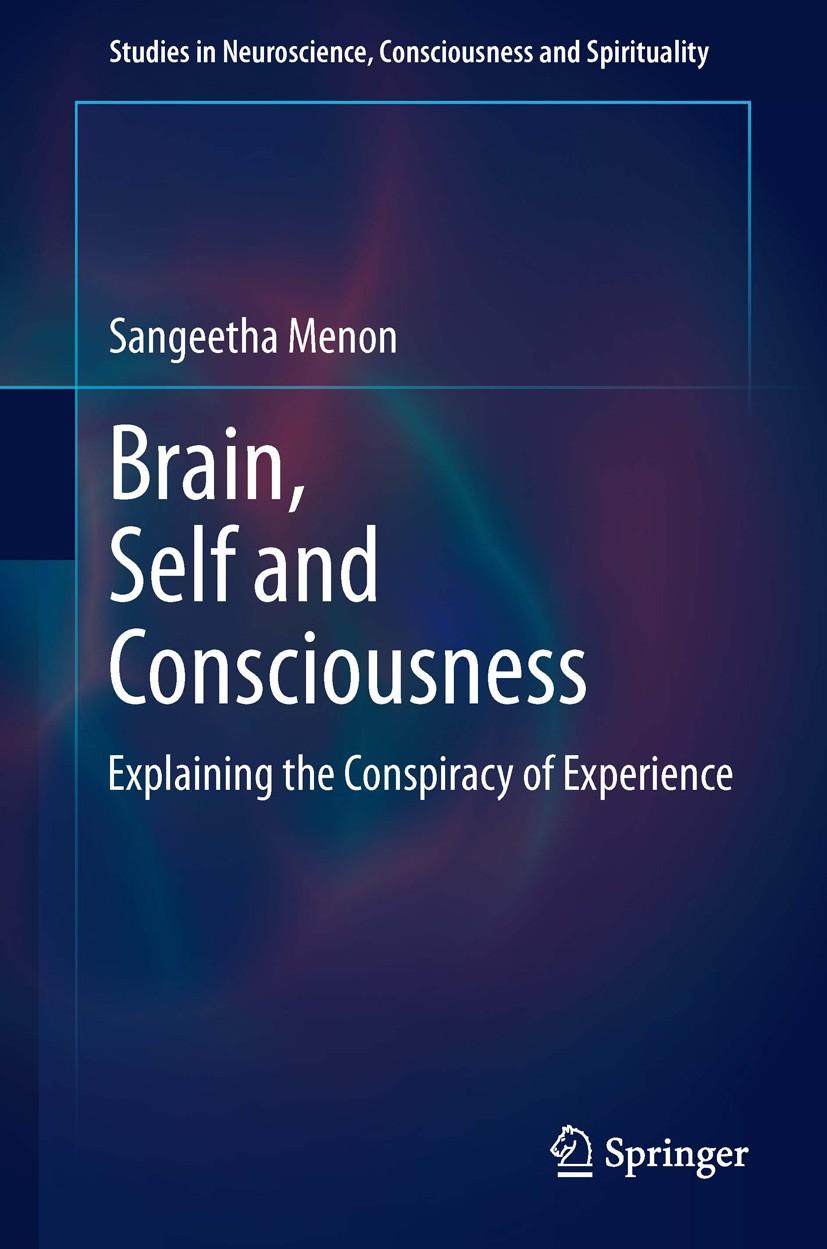
|
Sangeetha Menon Professor and Head, Consciousness Studies Programme Brain, Self and Consciousness: Explaining the Conspiracy of Experience https://link.springer.com/book/10.1007/978-81-322-1581-3 Springer NATURE, 2014 |

|
NIAS Public Lecture The līlā of communication and consciousness: Thinking with Ramchandra Gandhi’s philosophy of non-dualism Dr James Madeo Consciousness Studies Programme NIAS Lecture Hall 24 Apr 2023, 11:30 hrs |
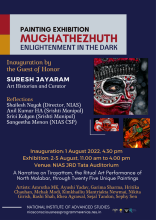
|
NIAS Painting Exhibition Mugathezuth (Enlightenment in the Dark) Consciousness Studies Programme JRD Tata Auditorium 01 August 2022, 1630 hrs |
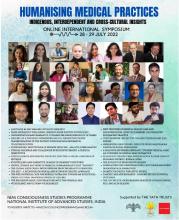
|
Online International Symposium Humanising Medical Practices: Indigenous, Interdependent and Cross-cultural Insights Consciousness Studies Programme Online 28-29 July 2022 |

|
Kaavyaalaap Kaavyaalaap Vaisistya: The Vachika Abhinaya in Bharatanatyam Rukmini Vijayakumar, Director, Lshva Consciousness Studies Programme 27 April 2021 |

|
Kaavyaalaap Kaavyaalaap Vaividhya Sudarshan, Sundar Ramachandran, Usha Sridhar Consciousness Studies Programme 16 March 2021 |
| POETRY SESSION Kaavyaalaap Vaividhya Sudarshan, Sundar Ramachandran, Usha Sridhar NIAS-Consciousness Studies Programme Virtual 16 March 2021 |
CSP recognising the importance of Leadership and Connecting Communities Initiatives during the COVID-19 Pandemic times organised several customised online short courses. The current pandemic times brought in a “closed down” and a psychological feeling of the inability to connect, socialise, or seek out for help and knowledge, including a peer connect.
Considering such a challenge that has social, psychological and pedagogic implications, initiatives were conceptualised and implemented towards “Leadership and Connecting Communities during the COVID-19 Pandemic times”. .
The following are the Courses organised and completed during the academic year:
- “Knowing, Experiencing and Being: Methods, Applications and Philosophies inspired by Phenomenology, Collective Frameworks, and Reflective Capabilities”
- Online Workshop on “Facets of Artificial Intelligence”
- Online Webinar series on the "Nine Dimensions of the 'Lockdown experience: The psychology and philosophy of the Self seeking freedom and boundlesness in a bounded and limited world"
- Online Course on “Readings from Indian Aesthetics”
- Online Course on “Phenomenology and Social Research”
- Online Course on “Quintessence of Being: Examining Existence and Experience”
- Online Course on “Introduction to Western Classical Music”
- School of Humanities Foundation Course
- International lecture series on “Sanskrit language and its traditions: A Journey through its history and contemporaneity”
- Other series include: “Svāsthya-rasa-bodhinī Public Lecture Series” “NIAS CSP Friday Lectures”; “Kaavyaalaap” and “The Reading Glass”

